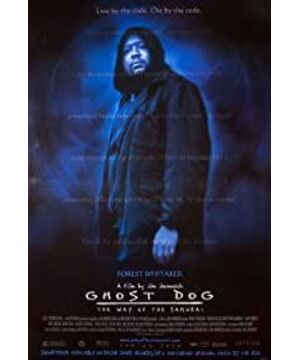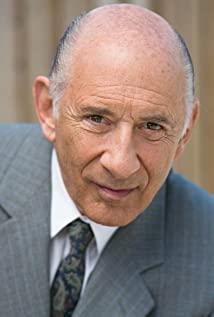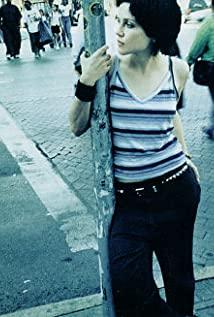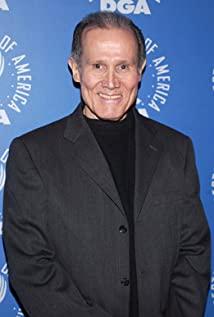I do not know much of the Japanese Bushido spirit, about the following points:
first, from Bushido warrior. The samurai is a class, as the vassal of the lord, between the officials and the people. The rise of samurai is closely related to the change of land power. The samurai is most concerned about protecting the family, and allegiance to the master is only a means. They have only one purpose, and that is to develop and grow their family.
Second, Bushido can be regarded as the professional ethics of samurai in a less strict sense. The core is to be loyal to the lord, to value profit and righteousness, and loyalty and righteousness are higher than life. But the righteousness of life and death is not just death. "Never steal a life when one should die, and never commit suicide when one should live."
Third, the roots of the Bushido spirit: 1. Zen, the so-called "relying on submerged thinking, comprehend thoughts that cannot be expressed in words", Zen emphasizes epiphany. 2. Confucian moral and ethical guidelines.
Fourth, the samurai should conduct devilish training, including martial arts, character, courage, etc. And exercise self-restraint in sitting meditation to break the barrier of life and death.
Fifth, the samurai cannot escape the fate of being a king or a loser. For example, in "Seven Samurai", the predecessor of the thieves was also a samurai, a defeated samurai.
Here is a question, is the samurai's life his own? If the life of the samurai belongs to his lord and clan, then the meaning of his life is to devote his life and to "death." In modern society, how significant is this concept of "death"? Or has it come to an era of complete abandonment.
2. Starting: humble life and depressed spirit
The underworld faced in "Ghost Killer" is like this: gangsters defaulted on rent, threatened by the owner and dare not say anything, but can fight with a naughty boy and delay the call of the boss . Most of the gangsters are old and old, and the murderers sent out can barely climb the stairs. Gang bosses are as simple as children, even scared to death by the appearance of ghost dogs, or indulge in TV cartoons all day long. This is a lifeless gangster society that has been subverted by Jamush. Instead of seeing the underworld in the movie as a real underworld, it is better to regard it as the living environment we face every day. This lack of social spiritual support, people live unconsciously and meaninglessly.
Fatefully, the ghost dog was saved by one of the gangs because of his life, and he gave his life to the other party without turning back. But this group of poor gangsters, in the confrontation with the ghost dog, their dignity was wiped out. After being washed in blood by a ghost dog, one of them sighed for the enjoyment of this bloody battle, which aroused a little blood in him. How humble life seems: there have been two stray dogs, killed pigeons, and those people killed by gangsters in the process of chasing and killing ghost dogs. All the killed, the murderers, the reasons for being killed and murdered are the same meaningless and absurd. Compared with ghost dogs' intention to place themselves in a humble position, the humble gangs are unconscious. So the conscious choice of the ghost dog has a special meaning.
Third, Cheng: irony and reflect on
the role of a ghost dog, in this reality, has a strong symbolic meaning. Including the ice cream seller who didn't understand his language but didn't hinder communication at all, the two people were confrontation and irony of the black and lifelessness. The ice cream vendor is full of confidence in life, has no pressure on language barriers, and even has to learn multiple languages. The ghost dog conducts meditation, enlightenment, and martial arts and other Bushido training, and communicates with the outside world through carrier pigeons. This way of life, in the face of the simple and empty reality around it, without spiritual power, seems to live in isolation and cannot be understood by Chang Dao. It seems mysterious, but because of the deviation, it is reflection and resistance.
But this kind of resistance is not revolutionary, and it also follows certain ancient ethics and morals. From the beginning to the end, the Bushido spirit embodied in "Ghost Killer", in addition to martial arts and Zen training (in my opinion, this training is more like a game and mystery), the most important thing is the content of loyalty to the master. Subordination is higher than life. When I watch "Ghost Killer", I often fall into a kind of confusion. From the above-mentioned Bushido's concept of "death", it can be roughly inferred that the ghost dog may eventually face the fate of death. The question is, from the beginning, why did the ghost dog choose Bushido? Why did the ghost dog accidentally save his life by Louis, and then hand over to Louis the life that should have been lost at that moment? The so-called "Never steal a life when one should die, and never commit suicide when one should live." There must be some kind of motive to "dead", and this motive may be what the movie wants to convey.
Fourth, turn: sacrifice for justice
from Ghost Dog behavior can be found, Ghost Dog conception of life is: life has equal value.
The ghost dog communicates with the ice cream seller who doesn't understand the language without any obstacles, similar to the realm of Zen. Communication with the outside world through pigeons and silent communication with stray dogs are equal dialogues. Regardless of whether people or animals have life, they are essentially equal. Therefore, Jiamuxu deliberately arranged such a plot, the ghost dog blood washes the gang, and on the way to leave safely, he encounters two people hunting the black bear, the motive for hunting is the indifference to life. So the ghost dog avenged the black bear.
Equality of life, and the ghost dog's dominance of his own life but handed over to the "master", is a potential contradiction in the movie. Louis is a member of the gang and listens to the gang boss. As Louis's "servant", Guigou's life has been dedicated to Louis. When Louis was ordered to kill the ghost dog, the ghost dog should go to death without any resistance in order to achieve "loyalty". In fact, the ghost dog has washed the gang with blood, leaving only the life of Louis. The reality of blood seems to arouse Louis's only remaining will to fight the ghost dog in a "noon"-style duel. So Guigou practiced his "righteousness" to Louis. Before he died, he handed the "Rashomon" to Louis and told him that the Bushido and Louis' underworld he practiced would eventually not exist in this world. With the ancient spirit he pursued and his actions, Guigou made his life dedication show a new meaning, although this meaning is not very clear.
Five co-: new hope
last sentence on Bushido and the underworld doomed, then revealed the secret. Jamusch only borrowed the mask of Bushido in this movie. With the help of the ancient spirit of Bushido, it is just to activate another passion that has long since died, and morality that has long since ceased to exist. Since the spirit is destined to be abandoned by reality, why do you still have to be persistent, even at the cost of life? Its purpose is of course not to linger, but to eliminate it completely. In the real life of spiritual depravity, everyone is unaware of the meaning of life. And the old spirit is destined to not be suitable for the new era, so it is better to liquidate it thoroughly and give birth to a new spirit when the old things are eliminated. The new spirit, borrowed from the hands of black girls, heralded hope. This kind of hope was not when the ghost dog passed the book to her, but when Louis was left in a panic, she picked up the unloaded pistol and shot Louis at the ghost dog.
Six, the end: a little regret
Through the introduction of "We Have No Tomorrow", I noticed that the photographer is Robbie Muller. Stealing cars, assassinations at the beginning, clean and tidy. As the car was driving on the road, the ghost dog's eyes showed a calm and even a little sad expression, which was close to the feeling in "Taxi Driver". Maybe "Taxi Driver" impressed me too deeply. The scene of the ghost dog fighting the gang is also calm, even indifferent, and even lacking in passion. This may be right, two spirits on the verge of extinction, fighting hopelessly at the end of their crossbow, is nothing but a tasteless lament.
The book "Rashomon" is not only the key, but also easy to cause confusion. Because for those who have not read this book, it is unclear. Including what the little girl who represents Hope said, everyone in Rashomon tells their own story, but she likes the first one the most. What is the first story? The movie "Rashomon" adapted by Akira Kurosawa always comes to my mind. Thanks to the analysis of the author of "Across the Rivers and Lakes", pointed out a feasible understanding to me. But for me, who lacked relevant information when I was watching (I believe that the audience who read this book will not account for the majority), this easily leads to a kind of confusion, which increases the degree of obscurity of the movie.
In this movie, Jiamuxu points out the phenomenon of the degeneration of the human spirit, and revitalizes it with a retro-reflective spirit, but he did not conduct an in-depth discussion on the root causes of the degeneration of the human spirit. All we can see is that the gangsters are simple-minded and addicted to cartoon television. On the basis of the lack of root cause analysis, the introspection proposed really lacks clear connotation, and it is just a kind of hope.
View more about Ghost Dog: The Way of the Samurai reviews











